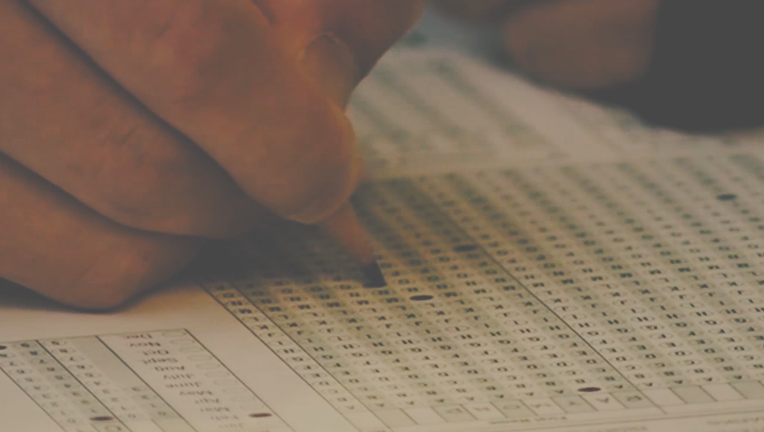Georgia test scores rise, but stay below pre-pandemic levels

ATLANTA - Test scores for Georgia students recovered some in the 2021-2022 school year from their pandemic plunge, but remain significantly below pre-pandemic levels, raising questions about whether students can fully recover and how long that might take.
The Georgia Department of Education released the annual Milestones test results Friday. Students in grades 3-8 as well as high schoolers take the tests. Federal law requires most of the tests.
Officials in the state Department of Education, which has downplayed the importance of standardized testing under Republican state Superintendent Richard Woods, are taking a positive approach to the results, which were generally improved from 2021, when Georgia administered tests under federal mandate despite opposition by Woods.
"You will see that results have not yet reached pre-pandemic levels, but they show that academic recovery is underway in Georgia’s public schools," Allison Timberlake, deputy state superintendent for assessment and accountability, told reporters Wednesday in a pre-release briefing.
Normally, test results would be used to assign A-to-F letter grades to schools and districts. That won’t happen for a third year in a row because the state can’t reliably compute some figures. There was no testing in 2020 and shares of students taking the tests in 2021 varied widely from school to school, making it generally invalid to compare 2021 and 2022 results at the school or district level, officials said.
Instead, the state will publish multiple measures that are normally parts of the overall grade, after the federal government waived part of the requirements for the state’s normal evaluation system.
Proficiency levels — the share of students meeting expectations for what they should know — averaged above 43% in English language arts and math in 2019, the last year before the pandemic. Last year they averaged above 38% in English language arts and above 37% in math. While most grades showed improvement from 2021, seventh graders continued to sink in both math and English.
Achievement levels on four required high school tests rebounded strongly after particularly sharp drops in 2021, when the state Board of Education, after strong pressure from Woods, voted to make those tests count nothing in a student’s grade. This year, the tests returned to counting 20% of a student’s grade in American literature and composition, algebra, biology and U.S. history. But even with big increases, achievement levels did not return to pre-pandemic levels.
The state will use the 2022 results to set new baseline measurements that will be used to calculate how much student achievement grows from year-to-year, meaning schools could get a lot of credit for growth if they return to pre-pandemic achievement levels.
Timberlake said that although all Georgia schools returned to in-person learning last year, students were still missing class because of COVID-19.
"We know that students had less opportunity to learn all the content standards given the interruptions from the pandemic, so when scores are lower, we don’t know if it’s because they actually performed lower or they just didn’t have the opportunity to learn all the standards as they would in a typical year."
Meghan Frick, a spokesperson for the state Department of Education, said the state has taken steps to "proactively address learning loss," including hiring academic recovery specialists, providing grants for afterschool and summer programs, providing formative assessments to help schools evaluate student achievement before the state tests and providing free slots in Georgia’s virtual school.
The state in June released a report on teacher burnout that warned that it was unrealistic to expect achievement to return to pre-pandemic levels "without giving teachers the time, support, resources, and compassion to meet students at their current academic levels."
NWEA, a not-for-profit group that makes tests used by schools nationwide, released a report last week that found achievement levels were rebounding somewhat nationwide, but that a recovery to pre-pandemic levels "is years away" and that federal COVID-19 aid is likely to run out before then. NWEA also found that nonwhite students and students in high-poverty schools remain disproportionately impacted.

